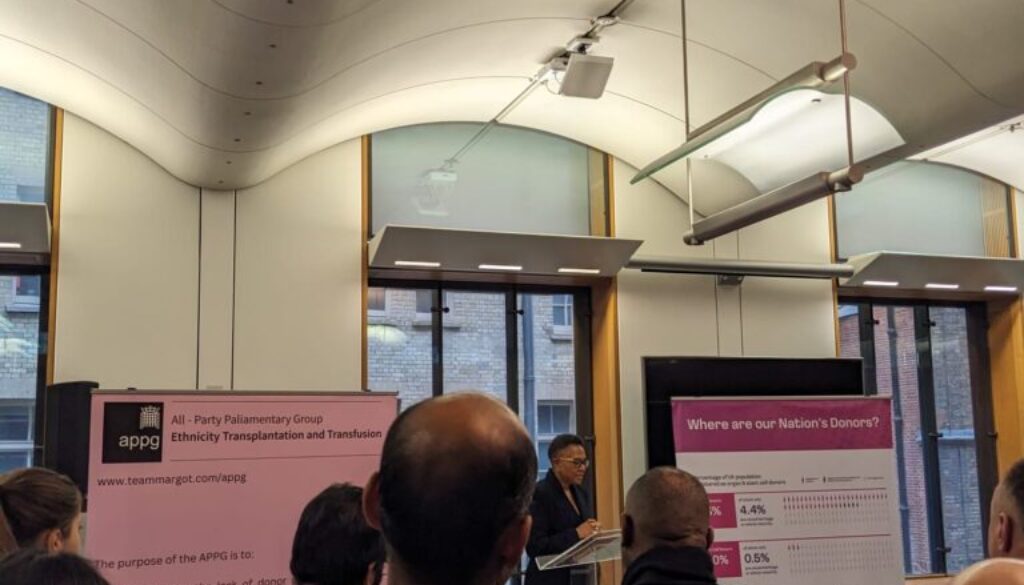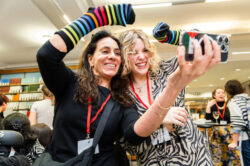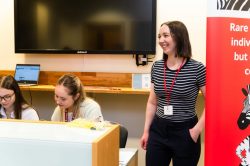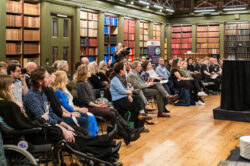‘Where are our nation’s donors?’ Parliamentary Launch Event by Nadine Jefferies
Last week myself and Dr Grace Knight, clinical ambassador for M4RD, got the chance to attend the All-Party Parliamentary Group (APPG) launch of the report ‘Where are our nation’s donors?’, in Westminster. The current population of blood and organ donors is overwhelmingly white, leaving people of ethnically diverse backgrounds waiting years to find a matched donor, and often resulting in preventable deaths.
APPGs are informal groups of members of both Houses with a common interest in particular issues. The APPG on Ethnicity Transplantation and Transfusion aims to highlight how the lack of blood, organ, stem cell and bone marrow donors disproportionately affects patients of mixed heritage and ethnic minority backgrounds, and to advocate for equitable access to treatment.
Since launching the inquiry called ‘Where are our nation’s donors?’, the APPG have received over 50 pieces of evidence from bodies such as NHS Blood and Transplant and the Department of Health and Social Care, as well as charities, clinicians, and patients. Our CEO, Lucy McKay, contributed to the evidence given in this report which you can read here: https://www.teammargot.com/all-party-parliamentary-group-inquiry/
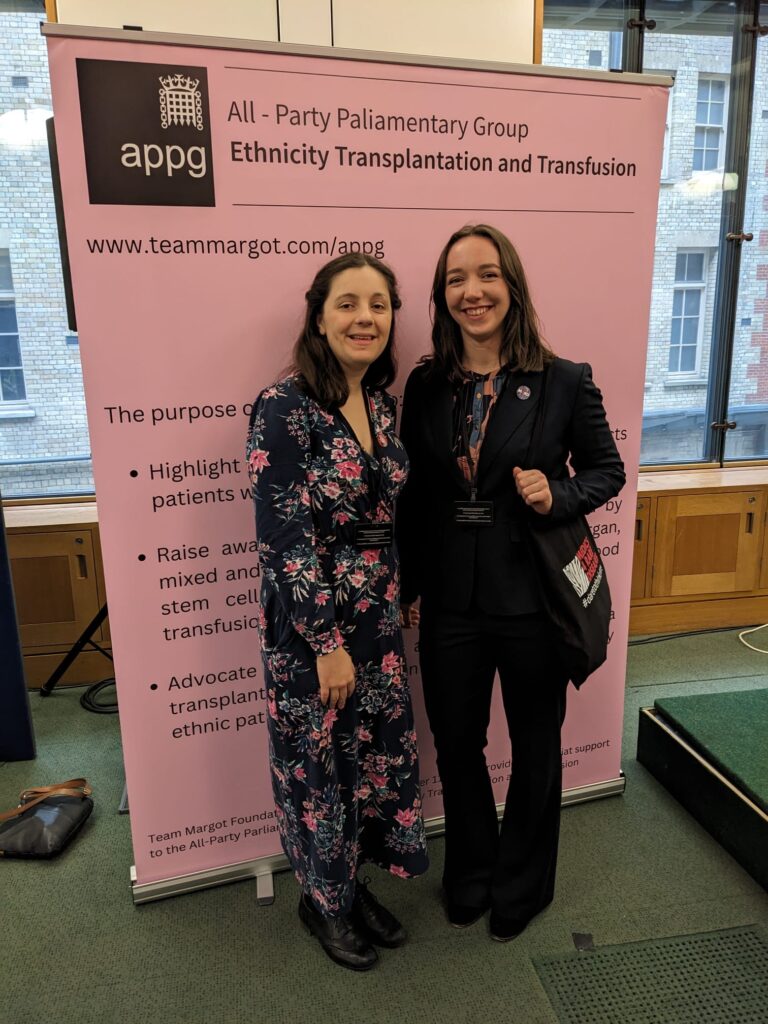
What’s the problem?
The UK’s mixed heritage and ethnic minority population are more likely to need donors because of diseases that disproportionately affect them, such as sickle cell and kidney disease. This is compounded by a lack of well-matched blood and tissue treatments available, as 99% of active blood donors in England are white. A general distrust in the health system, poor communication, and cultural and religious barriers are likely to contribute to this huge imbalance. As a result there are significant delays in diagnosis and referral for mixed heritage and ethnic minority patients, which is costing lives.
What is the report about?
The report aims to highlight this problem, and consider how current donor recruitment and participation is affecting patients of ethnically diverse backgrounds. To tackle this, the report outlines three main recommendations:
- Improved governance and accountability
- Improved data, reporting and transparency
- Improved education, awareness and activity
You can view the full report here: APPG Report, Where are our nation’s donors?
What did the speakers say?
Sarah Olney MP, Chair of the APPG for Ethnicity Transplantation and Transfusion, opened the event by describing the report as “thorough and damning”.
Beverley De-Gale OBE, co-founder of African Caribbean Leukaemia Trust charity (https://aclt.org), urged that “no one should die waiting for a donor to be found”.
She told us about her son Daniel, who in 1999 became the first black person in the UK to receive a stem cell transplant from an unrelated donor. This was phenomenal given that Beverley was told the chances of finding a matched donor for Daniel would be extremely difficult due to the lack of Black and Mixed Race people on the stem cell register. Daniel had a 1 in 250,000 chance of finding a donor because of his ethnicity; had he been White British, his chances would have been 1 in 4. Although this transplant allowed Daniel to live a life free from acute lymphoblastic leukaemia for several years, he tragically passed away in 2008, aged 21. This is due to health complications having received well over six years of chemotherapy and radiotherapy treatments while waiting for a matching donor to be found.
What we can learn from this heartbreaking story is not only the huge way in which transplants can improve lives, but also the shocking lack of progress in the last few decades. The lack of ethnically diverse donors that Daniel encountered decades ago is still an issue that remains to be solved today. How many more lives must be taken before real action is implemented?
Finally, Yaser Martini from the charity Team Margot Foundation (https://www.teammargot.com) closed by emphasising that these serious issues in our healthcare system must be addressed because they also affect our wider society in areas such as education, employment, and social inclusion.
Final thoughts
Grace, our ambassador, described the day as a ‘wonderful event to reflect on the huge battle we face to create equity in stem cell and marrow donation and provision, and to celebrate all the hard work that has been done so far.’
I hope to see the launch of this crucial report as a key turning point for our government to take action and put an end to the decades of avoidable deaths. Only through keeping the government accountable, ensuring thorough data reporting and increasing awareness of this issue can we start to give hope to families at a very vulnerable time. As Beverley said, no one should be left waiting for life-saving transplants.

